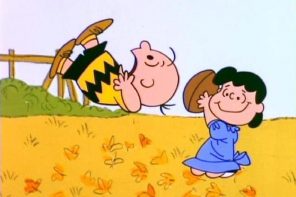One last word on Democrats’ apparent scale-back on religious outreach, responding in part to Sarah’s post on a subject I commented on the other day.
Sarah writes about Burns Strider’s consulting firm the Eleison Group, which as she puts it, has been pretty much the sum total of the party’s outreach to religious voters:
Eleison’s clients have tended to be conservative and anti-choice Democrats. Parker Griffith, the Alabama congressman who switched to the Republican Party, and Bobby Bright, another Alabaman who votes more Republican than Democratic, were Eleison clients. Both Bright and Griffith, as well as Mississippi’s Travis Childers and North Carolina’s Heath Shuler, also Eleison clients, voted for the Stupak amendment but against the health care bill last November, and against the final bill in March. Perhaps the Democratic Party — understandably — hasn’t detected all the benefits of Eleison’s faith messaging?
It’s a fair question. Diana Butler Bass explains why, with some academic rigor:
In 2004, a political science study from East Carolina University found that voters could be divided into three categories based solely on their beliefs about the Bible. Fundamentalists believed that the Bible was God’s inerrant word; moderates believed that although the Bible was God’s word, it wasn’t to be taken literally; and biblical minimalists believed that the Bible was a human document.
The researchers discovered that voters’ views of the Bible predicted their opinions about every issue from abortion and gay marriage to the size of government and taxes. Fundamentalists aligned with Republican politics; biblical minimalists aligned with the Democratic Party. This led the lead researcher, Dr. Peter Francia, to conclude, “It is not a culture war between red states and blue states, but rather a war between Fundamentalists and biblical minimalists within both the red and the blue states.” The moderates, apparently, shift their alliances but tend to cluster in blue states. The research further suggests that division doesn’t come from elites in politics and the media who “may be responding to the polarization that exists with the electorate rather than the other way around.”
Whoopsie. If you want a swing voter, don’t look for a traditional-but-not-off-the-deep-end Southern evangelical. Look for a coastal mainline Protestant or Catholic. Better yet, look for a coastal voter who sleeps in on Sunday mornings, because that’s the way the demographics are trending:
the growing “religious” edge of the Democratic Party is not — and will not be — the traditional evangelicals whom they once hoped to woo. Rather, the most significant grassroots pressure on Democratic candidates will come from those who hold liberal views of scripture. Some of those people will, no doubt, be progressive churchgoers (and not a few will be progressive evangelicals), but others — and probably many others — will be in the category of spiritual-but-not-religious, and still others will be secular humanists, agnostics, atheists, and adherents of non-western religions.
Diana thinks this poses a quandary for Democratic leaders. The question becomes not how do we reach out to religious voters? but whose religious values do we reach out to, if any? In that light, it makes a great deal of sense to pull back on the outreach program. Not knowing who you’re supposed to be reaching, or how, is hardly a recipe for success.
For my part, while I am sympathetic to Diana’s analysis and her conclusion that Democrats need to find a way to speak morally while respecting religious difference, I think it is much clearer that the political future lies with the “nones” that with any one brand of religious affiliation. But follow the typology: fundamentalists, moderates, biblical minimalists. It may be the single best guide to what happens in national politics in the next twenty years. Really.


